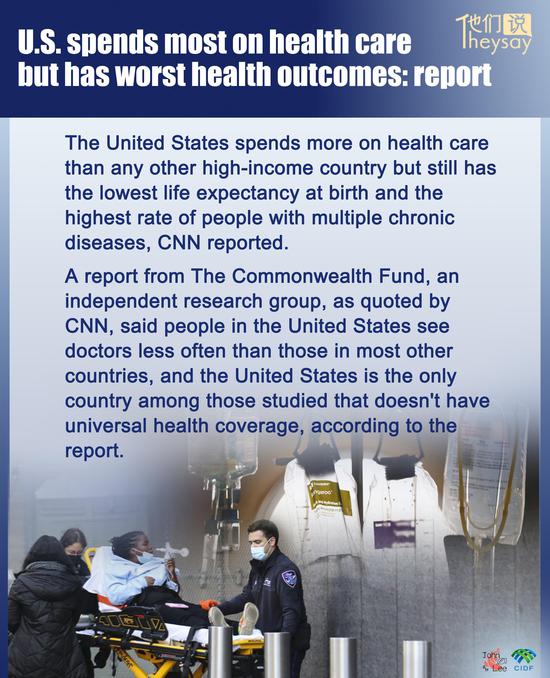
Nurses takes care of a newborn baby at a hospital in Baofeng county, Henan province, Jan 21, 2023. (Photo/Xinhua)
Projections in a UN report titled World Population Prospects 2022 show that if a fertility rate of around 1.4 is maintained in the long term, China's population will fall slowly to 1.3 billion by 2050, but will be nearly halved to 777 million by the year 2100.
"The next three decades will be vital. We should roll out effective measures to encourage births while the fertility rate is still fluctuating," Yuan said.
However, experts have acknowledged the severity of the challenge faced in raising the fertility level.
Although legal limitations essentially ended with the introduction of the three-child policy and the scrapping of all restrictive measures and fines associated with childbirth in 2021, the experts said couples are now simply unwilling to have more children.
Mao Zhuoyan, a professor at Capital University of Economics and Business, said that for parents, having an additional child means doubling the workload involved in daily care, finding satisfactory nursery care centers and kindergartens, and addressing a range of tasks associated with children's education and medical needs.
"For mothers, discrimination in the workplace adds to the pressure. Young parents also tend to feel overwhelmed (by parenthood) and have to seek help from their own parents in raising children," she said.

Nurses look after newborns at Xiangyang No 1 People's Hospital in Xiangyang, Hubei province. [Photo by GONG BO/FOR CHINA DAILY]
The central and local governments have introduced a series of incentives, including tax cuts, cash bonuses and extending maternity leave, but Mao said implementation of these measures is still at an initial stage, and more comprehensive and concrete action should be taken to encourage couples to have children.
Last month, the government in Shenzhen, Guangzhou province, said couples having a third child would be eligible for a cash allowance of 19,000 yuan ($2,825) until the child reached the age of 3. Public opinion is being sought for this measure.
The subsidies for having a first and second child would be 7,500 yuan and 11,000 yuan, respectively, the government said.
However, Ma Li, 29, who lives in Shenzhen and is planning to have her first baby in the coming years, is reluctant to have a second or third child. She said the allowances offered have affected her decision.
"The time and energy we need to invest in raising one child is overwhelming, let alone two or three. The most effective incentive would be to give me an apartment," she said.
Ma added that despite appealing for more affordable nursery care services to be provided in recent years, she has rarely seen employers offering to equip workplaces with such facilities.
"I am also looking forward to assisted fertility procedures being reimbursed in the future. Many people wanting a second child are in need of such services," she added.
Mao said action needs to be taken now to adjust to new trends, such as delaying marriage and having children.
"For example, the increasing number of high-risk pregnancies means that more women are undergoing costly prenatal examinations, and more couples are also seeking fertility treatment. Such services are not included in medical reimbursement plans," she said.
Mao added that it is important to increase willingness among young people to get married and guide them in starting a family at recommended ages.
Song Jian, a professor at Renmin University's Population Development Studies Center, said boosting the fertility rate is the only way to address a population decline.
"Over the years, the burden of looking after the elderly and young children has shifted to families themselves. Such a burden, coupled with workplace pressures, has deepened anxiety and even fear about marriage and childbearing," she said.
Yuan, from Nankai University, said: "Many young people are unwilling to marry, and are choosing to stay single or have no children. Their perspective on marriage and childbearing has changed a lot from that of previous generations."
He suggested that the precise needs of young people should be determined so that they can be persuaded to change their views on marriage and having children.


















































 京公网安备 11010202009201号
京公网安备 11010202009201号